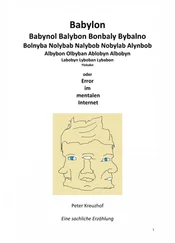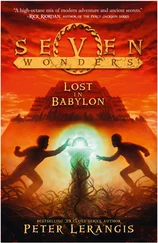Peter Pišt'anek
Rivers of Babylon
Peter Pišťanek (pronounced Pishtyanek ) is one of the most talented prose writers to appear after the fall of Communism in Slovakia. He is also a colourful and controversial personality whose many-sided activities were unthinkable in the Communist era. He was born in 1960 in Devínska Nová Ves, a village now swallowed up by Bratislava, the capital of Slovakia. He enrolled in Bratislava’s Academy of Performing Arts, but did not graduate. He was also a drummer in a very well known rock group. At the end of the 1980s he began to publish in the literary monthly Slovenské Pohľady (Slovak Views). His breakthrough came with Rivers of Babylon (1991), a novel that caused a sensation and catapulted him into fame. This novel is the first part of a trilogy, followed by The Wooden Village and The End of Freddy (which the Garnett Press hopes to publish soon in English). Since the end of the 1990s Peter Pišťanek has worked for advertising agencies and edited an influential Internet magazine Inzine . He has also become something of an expert on brandies and whiskies.
Pišťanek’s reputation is assured by the originality, fine craftsmanship and imaginative inventiveness of Rivers of Babylon and the rest of the trilogy. Perhaps this, the first volume, is Pišťanek’s greatest achievement, not least because of the mesmerizing presence of one of the greatest characters introduced to Slovak literature, Rácz, a vulgar, unstoppable idiot of genius, a gangster with no conscience, but his own rules of conduct. Rácz appears in the autumn of 1989, just when one world, “Socialism”, a corrupt system run by cynical administrators, is crumbling and another world, of rampant robber barons’ capitalism, is born.
Better than any historian or novelist of the last fifteen years, Rácz and Rivers of Babylon tell a story not just of Slovakia, but of much of Central and Eastern Europe, where an alliance of criminals, intellectuals and unemployed secret policemen has infiltrated the new-born ‘democracy’.
Today’s Slovak readers acknowledge Peter Pišťanek as the country’s most flamboyant and fearless writer, though many are shocked by his iconoclasm. A literature that once showed the Slovaks as a nation of wise bee-keepers and virtuous matriarchs now presents the nation stripped of its myths and false self-esteem. It is high time, however, for the world to read one of the most vibrant and original ‘rogue’ novels ever written. Peter Pišťanek’s Rácz will prove as immortal a rogue as Fielding’s Jonathan Wild, Gogol’s Chichikov or Thomas Mann’s Felix Krull.
Some guidance for the British reader…
Time and place
The novel is set between August 1989 and spring 1990, when the Czechoslovak communist government crumbled and fell in what the Czechs call the ‘velvet’, and the Slovaks the ‘gentle’, revolution. Most of the action takes place in Bratislava, then the capital of a Slovakia which was still part of Czechoslovakia. Two scenes of the novel are in the Hungarian-speaking countryside south-east of Bratislava, from where the anti-hero Rácz originates.
Currency
Currency-dealing plays a part in the novel’s plot. Before the advent of the euro, there were German deutschmark , worth a little under 3 to the pound, Austrian schilling , worth about 20 to the pound, and the Czechoslovak crown worth between 40 and 75 to the pound, depending on who exchanged it, and where.
Some characters and how to pronounce their names
We have decided to keep Slovak spellings of characters’ names, but here is a guide to pronouncing the more problematic and important ones. All names are stressed on the first syllable:
Rácz, the (anti-)hero pronounce as Rahts
Ďula, Rácz’s sidekick Dew-lah
Kišš, the village butcher Kish
Eržika, his daughter Air-s[ as in pleasure ]ika
Bartaloš, Eržika’s suitor Bartalosh
Šípoš, a gypsy hustler Shiposh
Mozoň, ex-secret policeman Mozogne [ n as in Boulogne ]
also known as Ščepán Shchepahn
Šolik, ex-secret policeman Sholik
Peter Petro and Donald Rayfield
For Rudolf Sloboda and Tibor Rencés
In the morning the boiler-room stoker wakes up with such hatred in his soul that he doesn’t even feel like eating. He just slumps onto his wooden bench, scratching his itching skin, which clings to his sunken ribs, and looks around blankly. He doesn’t even try to think about the source of his hatred. The boiler-room is dark, with washed-out peeling walls, but the outlines of the cold boilers are still visible. The wind whistles inside the boilers.
Finally, the stoker gets up. He stokes the furnace that supplies hot water to bathrooms and kitchens. He watches the flames for a long time. The red glow radiating from the open muzzle of the furnace damps down his morning anger and brings him back to life.
All those years stoking in the Hotel Ambassador have wiped out any thoughts about the meaning of life. To his mind a life-style consists of just keeping the fire alight under the boilers and making minor repairs to the heating system.
The stoker lives with no significant human contact. Feelings and emotions that used to determine his relationships with people, animals, things, and opinions have atrophied after many years of isolation. The meaningful world has shrunk to that of his boiler-room. Heating the Hotel Ambassador and other buildings supplied by his boilers is all that he’s interested in. As a result of this deliberate mortification, the stoker is subject to periodic outbursts of ferocious rage. They occur pretty regularly. They come as the climax of a period when the stoker tries very hard, like a sheepdog, to gather in the unruly herd of thoughts which have scattered to all corners of his uncomplicated soul. Every time he has thoughts, they start to lick his brain with their rough kittenish tongues, as he sits there crestfallen. With his head in his hands, he seems afraid that the seething flow of unarticulated, truncated, and feverish ideas might burst the bones of his skull. Thoughts combine, bubble, and push the stoker’s eyes out of their sockets. They are followed almost at once by thick, inextinguishable fury. It almost takes his breath away and his eyes dim.
This rage is now torture for the stoker. It’s not channelled into anything in particular. He can, and often does, turn it on himself. Once his rage gains the upper hand and he needs to release it, he slaps his face until he sees stars. Or he might hit the sharp edge of the table with his withered fingers. Searing pain takes time to come. Waiting for it always makes the stoker rational and sad. He humbly sits back and waits for his dose of painful ecstasy. Pain explodes in the centre of his skull, as soon as the impulses unerringly and mercilessly navigate the nerves of his withered body. The pain is sharp and shattering, forcing him to put his aching fingers deep into his mouth. There, soothed by the warmth of his feverish breath, his pain subsides. It spreads into his skull bones and disperses into the aspic of brain cells. And so does the rage. The stoker suddenly feels hungry and takes immediate steps to satisfy his hunger with a bit of bread, a piece of bacon, and a bulbous red onion.
For Donáth the heating season doesn’t begin until the end of summer. Something in the air forces the old man off his rough-hewn, squeaky wooden bench. Nobody in the city suspects yet that the demon of decay has begun its work. People walk about dressed lightly, the swimming pools are packed with swimmers, and the vendors of cold drinks and ice cream are doing brisk business. But Donáth’s eyes betray a humble acceptance of the way things are. He sees what the others don’t: the colour of the sycamore trees in front of the hotel is a shade dirtier; the dead insects at the edge of the lawn; the changed behaviour of the scavenging birds hopping about in the back-yard skips.
Читать дальше












